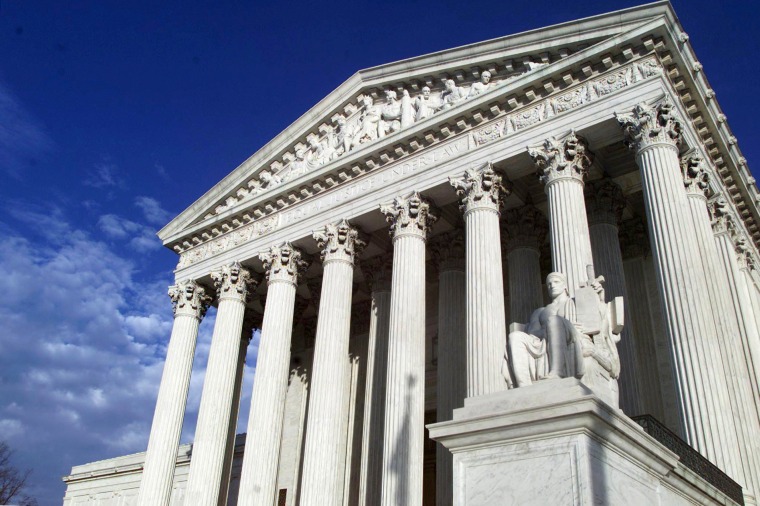WASHINGTON — State officials in Alabama asked the U.S. Supreme Court Thursday to block a lower court order that allows voters to cast their ballots curbside at polling places.
Three weeks after absentee voting began, a federal judge barred the state from enforcing two laws governing mail ballots. They required voters to submit a copy of a photo ID and to confirm their identity by offering the signatures of two witnesses or a notarized statement.
That ruling came in a lawsuit filed by voting rights groups that said they were seeking an option for people at risk of severe illness from Covid-19 or who had a disability.
U.S. District Court Judge Abdul K. Kallon also ruled that counties could offer curbside voting if they wish.
Alabama law does not prohibit that practice, but it doesn't provide for it, either. The Secretary of State, John Merrill, said it would not be feasible for the state to make it available for in this year's election.
The Eleventh U.S. Circuit Court of Appeals stayed the orders pertaining to mail ballots, so the original state requirements remain in effect. But it allowed the ruling on curbside voting to stand.
In asking the Supreme Court to block curbside voting, the state said it would "cause confusion and much harm," pose safety concerns and could compromise ballot secrecy,.
In July, the Supreme Court blocked a lower court order that lifted the witness and voter ID requirements and allowed for curbside voting in the primary election. The latest ruling by the judge is "deja vu all over again," the state said.

